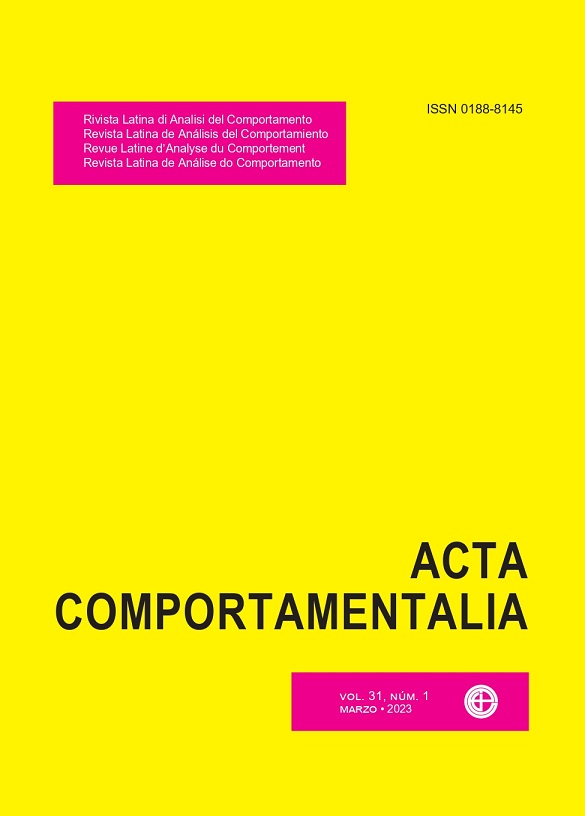Empirical evidences for the law of least effort: considerations about the response cost
DOI:
https://doi.org/10.32870/ac.v31i1.84996Keywords:
effort, principle of least effort, response cost, response force, response rateAbstract
According to the principle of least effort, organisms tend to behavior in order to avoid unnecessary expenditure of energy or resources. This principle was tested through differents experimental designs, with distincts concepts of effort. It is usually operationalized consider the effort as the amount of responses required to obtain reinforcement, what makes the notion of effort closer to the concept of ratio schedule of reinforcement. Effort can be also defined as the minimum force required during the emission of each response, concept that is often found in
its experimental literature. In both possibilities, most experts defend that the principle of least effort, inherently to operant behavior, is an accurate description of broad functional relations. The purpose of this essay is to revisit researches that investigate the effects of effort on response rate and discuss whether its findings support the principle of least effort or not. The results of this research show that the suppressive effects of increasing effort are not unanimously accepted by
behavioral scientists. Some experimental data imply that there are circumstances and methodological arrangements in which increasing the physical demand of the operandum can lead to an increase of the response rate. Concomitantly, there are data on choice designs showing a consistent preference for the highest effort option. Something similar is observed in the phenomenon known as contrafreeloading, in
which the subjects emit operant responses for the production of food, even when food is freely available. These studies are relevant because they broaden the set of experimental phenomena pertinent to the discussion of the principle of least effort and raise important methodological issues. These contributions, however, are not
enough to state that the principle of least effort is invalid or outdated. Phenomena like contrafreeloading can be interpreted in a way that they are not in conflict with the principle of least effort. In addition, methodological limitations of some experiments that support this principle do not necessarily refute the principle itself. The
studies whose results supposedly contradict the principle of least effort themselves have important methodological limitations, what shows that this topic demands a considerable amount of empirical research.
Downloads
Downloads
Published
How to Cite
Issue
Section
License

<a rel="license" href="http://creativecommons.org/licenses/by-nc-sa/4.0/"><img alt="Licencia de Creative Commons" style="border-width:0" src="https://i.creativecommons.org/l/by-nc-sa/4.0/88x31.png" /></a><br />Este obra está bajo una <a rel="license" href="http://creativecommons.org/licenses/by-nc-sa/4.0/">licencia de Creative Commons Reconocimiento-NoComercial-CompartirIgual 4.0 Internacional</a>.






